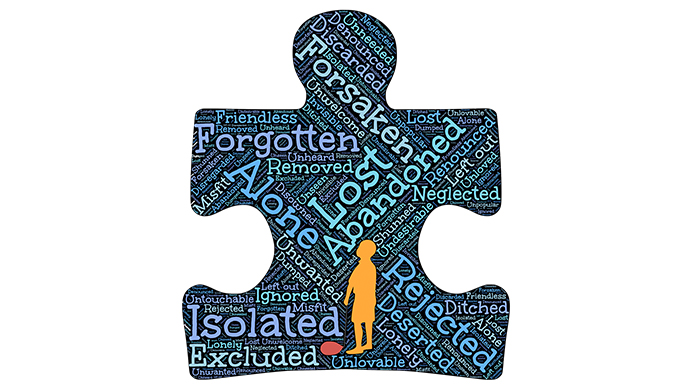This content is associated with The Open University's Psychology courses and qualifications.
What are extremism and terrorism?
There is no agreed-on definition for these terms, as different countries define them in various ways. However, extremism can be understood as strong vocal and active opposition to the fundamental values of a society such as democracy, tolerance and the rule of law. Violent extremism or terrorism is the taking of violent actions to bring about ideological, political or economic change in society in line with the group/individual beliefs. Examples of terrorist groups include Al Qaeda, ISIL and Boko Haram.
Many factors have been identified as to why people join extremist groups. There are push factors, that is conditions that lead to a person wanting to engage such as poverty, discrimination, lack of opportunities, history of abuse, bullying, low self-esteem, loneliness, some mental health difficulties etc. There are also pull factors, that attract people to specific groups such as gaining a sense of belonging and acceptance, friendship, excitement, the potential for romantic relationships, a sense of purpose, a belief that they are fighting injustices and a strong sense of identity.
However, no single cause has been identified for why someone becomes an extremist and there is no one set ‘profile’ for an extremist.

What does this have to do with trauma and identity?
Given that there are many factors implicated in engagement with extremism and that many people could potentially share these factors and experiences, the question that fascinates researchers is not why do people become extremists, but why do so few people become extremists?
Factors that have recently been gaining attention are the experience of trauma and mental health difficulties. While the research shows that trauma alone does not cause engagement with extremism, some extremists, in particular so-called ‘lone-wolf’ attackers, have been shown to have suffered traumatic experiences and psychological problems. Others suggest that trauma is the root cause of many social problems such as drug and alcohol abuse, violent crime, involvement in gangs and self-harm, with extremism being one possible outcome.
Trauma can affect how a person sees themselves, others and the world. How much it affects a person is dependent on what happened, how often it happened, how it affected them, how they made sense of it, its consequences, their personal history and vulnerabilities, their strengths, what support they had and what other stressful events were going on in their lives.

What is identity and how does it relate to engaging and extremism?
How we see and think of ourselves makes up our identity. Most of us have many identities. For example, I am a woman, a daughter, a friend, British, and a researcher, among other things. However, our identity is not defined by ourselves alone. We need those who are part of our group to accept us. For example, if we see ourselves as British, for it to be meaningful, we need other British people to also see us as British.
If you see yourself as British but others treat you like you are not and you are not afforded the same rights and privileges as other British people or are told to ‘go home’, it threatens your sense of being British and your place in your community and society. Other times, if you see people, who you do not consider to be British, as getting preferential treatment and access to services that are rightfully yours as a British person, this can threaten your sense of belonging and status without your community and society.
These experiences can leave a person feeling rejected, powerless, scared, angry, humiliated or ashamed and can be experienced as traumatising. These intense emotions can lead to people taking steps to seek understanding, validation of their experiences and to feel valued and in control again by turning to others who have had similar experiences. Other times, these intense feelings can result from others who share their group identity and therefore they consider their kin, having these difficult experiences, leading to a sense of grievance against those who are causing their pain. For example, Islamist groups often justify their violent acts by saying they are avenging their Muslim brothers and sisters who suffered due to Western military actions in Iraq and Afghanistan.

In my research, I am exploring how traumatic experiences, including identity-based trauma such as marginalisation, victimisation and discrimination can influence a person’s sense of identity and their subsequent engagement with extremism. I am hopeful a better understanding will help us better target support for those vulnerable to engagement in extremism and terrorism.





Rate and Review
Rate this article
Review this article
Log into OpenLearn to leave reviews and join in the conversation.
Article reviews